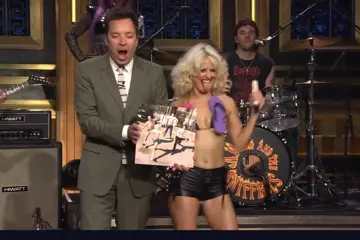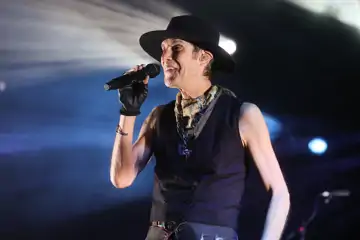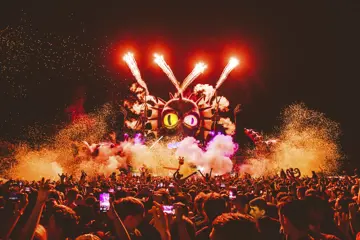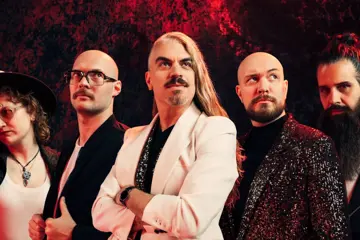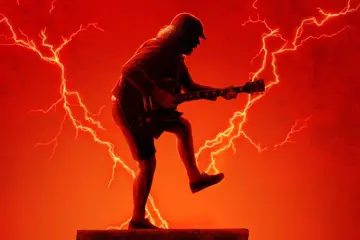It's not often you witness something that seems cinematically unprecedented, but that's what watching The Act Of Killing feels like. Joshua Oppenheimer's astonishing, decade-in-the-making documentary is a portrait of death-squad soldiers living out a peaceable retirement in modern Indonesia. Back in 1965 and 1966, the army, paramilitary groups, and militant Islamic sects combined to kill between 1 and 2 million people; a 'communist'-cleansing that ushered in Suharto's New Order. Having spent five decades living under a regime of impunity, the subjects aren't war criminals, but war heroes. And, so, The Act Of Killing is an indictment of Indonesia in a roundabout way: showing the victors and their spoils; the losers kept out of frame just as they've been expunged from society.
Oppenheimer originally set out to make a film about these victims - a portrait of a community of survivors, still finding themselves persecuted by the powers-that-be - but found himself constantly being arrested, his footage confiscated by police. So, he turned the camera on those who were free to talk about what they'd lived through: the perpetrators. Rather than reluctance, they're all to willing to talk, verily falling over themselves to boast of their deeds; these killers a crew of aged made-men self-styled in the garb of the Mafioso gangsters they watch in Hollywood entertainments. In an inspired instant that turns The Act Of Killing on its ear, Oppenheimer challenges his screen charges to dramatically recreate their crimes; to allow them free creative rein over a movie of their exploits, a to-screen adaptation of their most audacious boasts, a portrait of their self-made mythos. From there, it becomes both harrowing and weirdly hilarious, as these senior citizens stage a no-budget, local-theatre-esque production in which bloody tragedy becomes bizarre farce.
Oppenheimer's astonishing film presses on over the years, heading out towards three hours, with every new frame offering a different layer; the weight of their crimes growing heavier as the tone of their adaptation gets lighter. History has long been written by the winners, and The Act Of Killing is about how it gets told; about the very act of storytelling, and, in turn, about cinema itself. The only way you can condone murder, one of the former executioners says, is by making up a good enough excuse; a line that says so much not just about war crimes, but about, say, action movies or revenge thrillers. These goons were, after all, killing communists; a red menace so often made morally-condonable collateral in action movies. But the reductionist black-and-white of good-vs-evil stories - Oppenheimer mocks it as “Star Wars morality”- is a fiction; evil isn't committed by evil people, but human-beings.
Looking into the eyes of the film's 'lead' subject, Anwar - clown, grandfather, local celebrity - isn't like coming face-to-face with a devil, but a man desperately trying to convince himself that what he did is OK. Yet, the film's 'meta' quality adds layers to his justifications, to his dramatic recreations, and to the breakdown it's building towards. The Act Of Killing climaxes when Anwar, at the scene of one of his least-'forgivable' executions, breaks down and starts wildly dry-heaving. But is he really, finally, having a crisis-of-conscience? Or is his retching just a performance for the camera?

You're on candid camera!
Stories We Tell may not come with the same social weight nor bloodied hands, but it, too, is a profound documentary study on the human need to create narratives; to turn past transgressions into long-worn anecdotes, to pen memoirs airing dirty laundry, to make a film - that ultimate fabrication - in search of truth. The truth Sarah Polley, its maker, is pursuing is the identity of her birth father. Her 'cuckoo's egg' looks had long been a running joke in her family, but also a secret that seemed destined to be forever buried when, in 1990, Polley's mother carried it to her grave (a coincidence unexplored herein is that Polley was, at the time, starring as an 11-year-old in Disney's Road To Avonlea, a series about a girl whose mother dies).
Yet, as its title suggests, the film isn't really about who Polley's biological father is (as opposed to, say, Nathaniel Kahn's My Architect, whose title captured its pursuit of the father the filmmaker never knew, the late Louis Kahn). It's, more than anything, about unravelling the life, and the secrets, of her late mother; but even that's only part of it. “What do you think your film is actually about?” asks one of her siblings, in the middle of a to-camera confession; turning the inquisition back on the interviewer. “It's about a lot of things,” Polley says; not just stories, secrets, and truths, but about time, memory, human frailty, family, temporality. Essentially: what it means to be a human-being, to perceive the world, to make sense of experiences.
It's weighty, existential territory for any sentient mammal, but Polley is completely up to the task. Given she'd previously been less-than-impressive helming the clumsy Away From Her and the horrendous Take This Waltz, it comes as a huge surprise; the filmmaker not only avoiding the contrivance, manipulation, and unearned sentimentality that's dogged her fiction work, but staging an ongoing dialogue in which the very process of the filmmaking itself is called into question. Keen-eyed viewers will initially be perturbed - stylistically, and perhaps ethically - about how Polley uses actual super-8 footage of her family and dramatic super-8 recreations interchangeably, but eventually she pulls back the curtain, shows the artifice, and her own hand in this. Perhaps it was inevitable: it's hard to make a film about yourself - about the very basis of your existence - and not enter into the frame; hard to make a film about truth without holding yourself to that ideal.
In that way, even as this is a film about parents and siblings and lovers and secrets, it's really about its author, trying to make sense of the story of her life, and the story of her film. The meta-moments in Stories We Tell aren't digressions, though, and they don't dilute the power of the picture; instead, they enhance it, adding another layer of humanity to a many-layered artwork. In the same way, the personal nature of Polley's picture doesn't limit its emotional impact; instead, it creates currents of empathy and depth of profundity.


